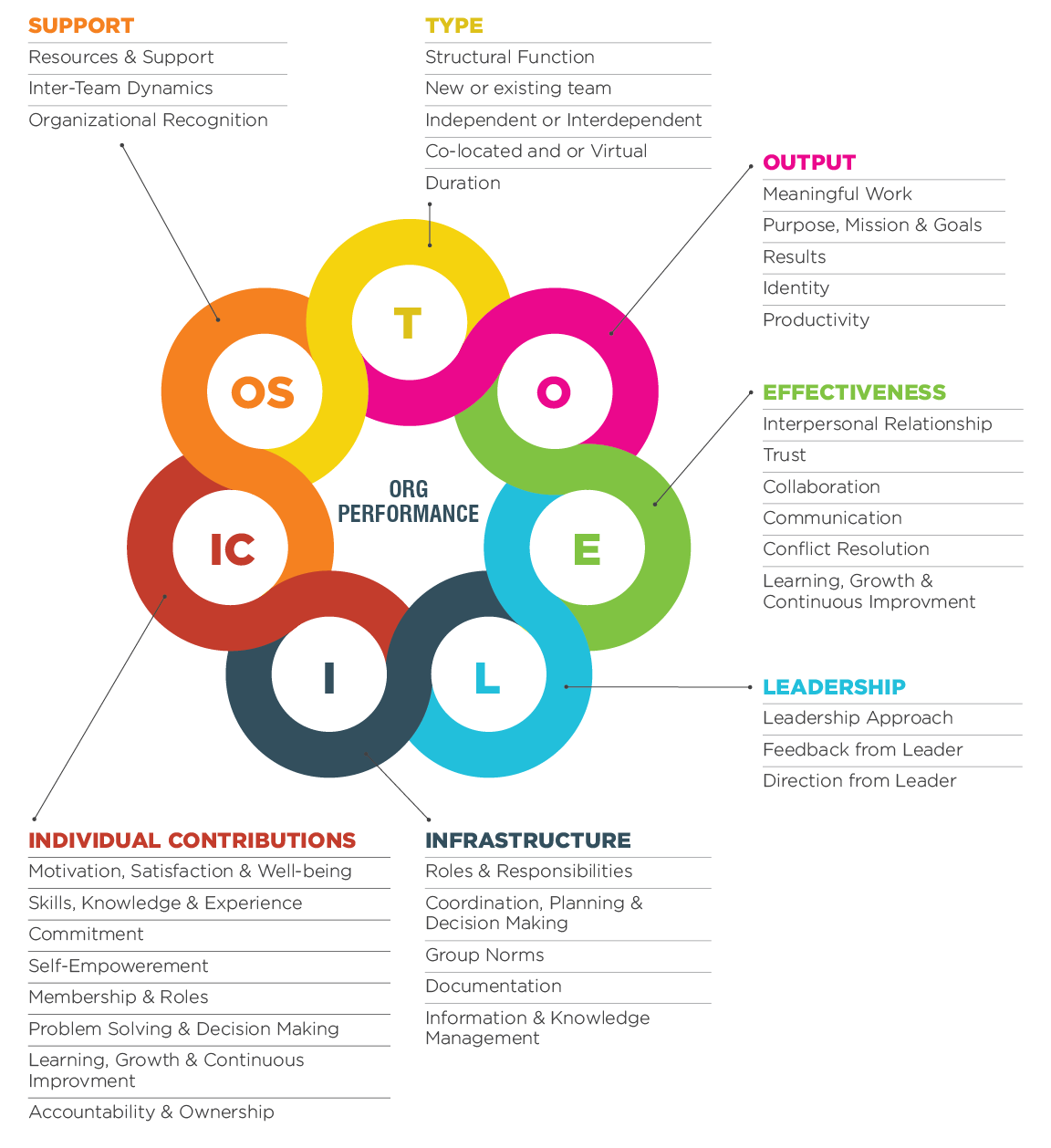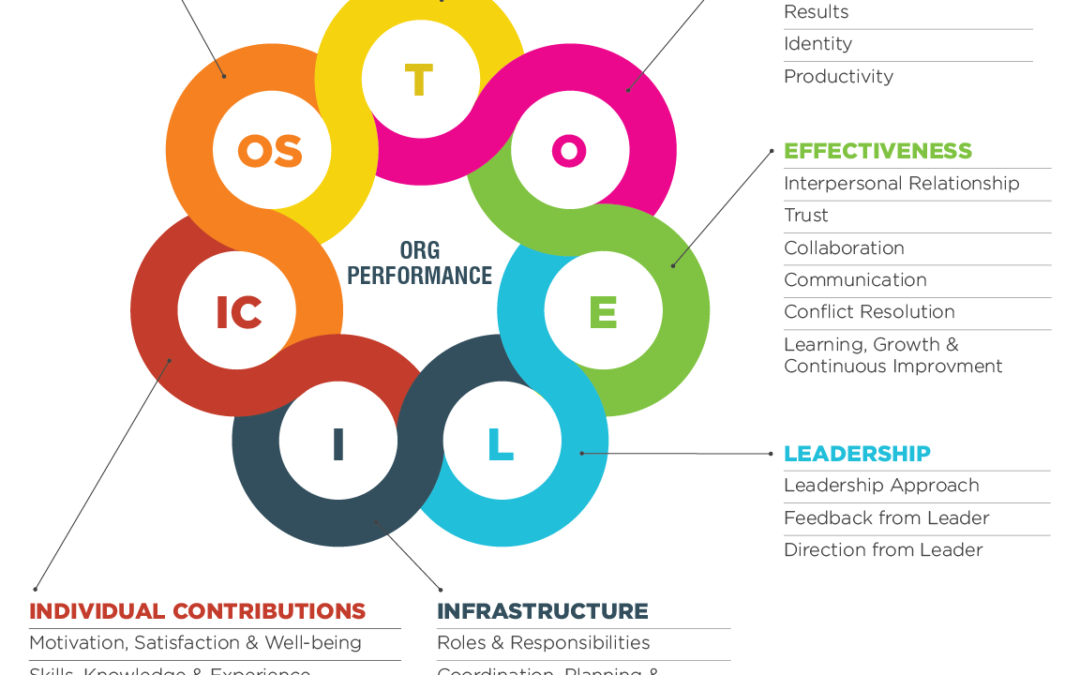Before crafting a new employee development strategy, it’s important to know the current status of your team or teams. With a quick and easy workplace survey such as Team Assess, you can take in valuable data about your employees in a user-friendly format.
This information spans seven different areas of performance, developed using academic research and validated by the Institute for Leadership Excellence and Development (iLEAD) at the University of Illinois at Chicago. The data gleaned from the survey correlates to information your team members need to know, and will point your development plans in the right direction. Furthermore, progress reports generated by the Team Assess survey will ensure you can tell at a glance whether individuals have improved or regressed over time.
The 7 Key Success Factors
Each team surveyed using Team Assess is rated on seven important factors. The results will point your way, ensuring you know just what to work on to raise that group’s effectiveness. Run surveys for more than one team, and you can see results for the whole organization. This gives you the know-how to point your company in the right direction, more than you would receive with a less empirical cultural or engagement study. The areas of study are as follows:
- Team Type: This portion of the survey measures the basic details of the team’s role within the organization at large. Is it a new team or has it existed for a long time? Does it work independently or is it dependent on others? Are workers physically in the same space or do they interact only digitally?
- Team Output: Output is a measure of what the team accomplishes in its day-to-day activities. The results members accomplish are sorted under this heading, as are its goals and overall identity.
- Team Effectiveness: How are the working conditions within the team? That’s what this success factor measures. Do team members collaborate freely? Do they trust one another and communicate well? Conflict resolution, growth and learning also fit in this subject.
- Team Leadership: A good leader can elevate a team, while an unsuccessful one can drag other employees’ performance down. Therefore, leadership gets its own success factor. Team members weight in on the direction and feedback they get from their bosses.
- Team Infrastructure: Tying into leadership styles, this success factor determines how the structure of the team functions. The kinds of roles and responsibilities in use are measured under this heading, as are the methods the team uses to document and store its knowledge.
- Individual contributions: How committed is each individual to his or her work? Are employees self-empowered or demoralized? Do they feel healthy and well taken care of? Those are the kinds of information tabulated as part of this success factor.
- Organizational Support: A team may be primed for failure unless it has the backing of the organization at large. Therefore, it’s important to determine whether the team works well with others and has the support it needs to contribute meaningfully to the mission.
With detailed results about those seven success factors, leaders can determine just where attention is needed and what they should do next.
Come back for a deeper dive into the Team Assess methodology, or get in contact now – Reach out via email or call 1-800-203-6734.


Recent Comments